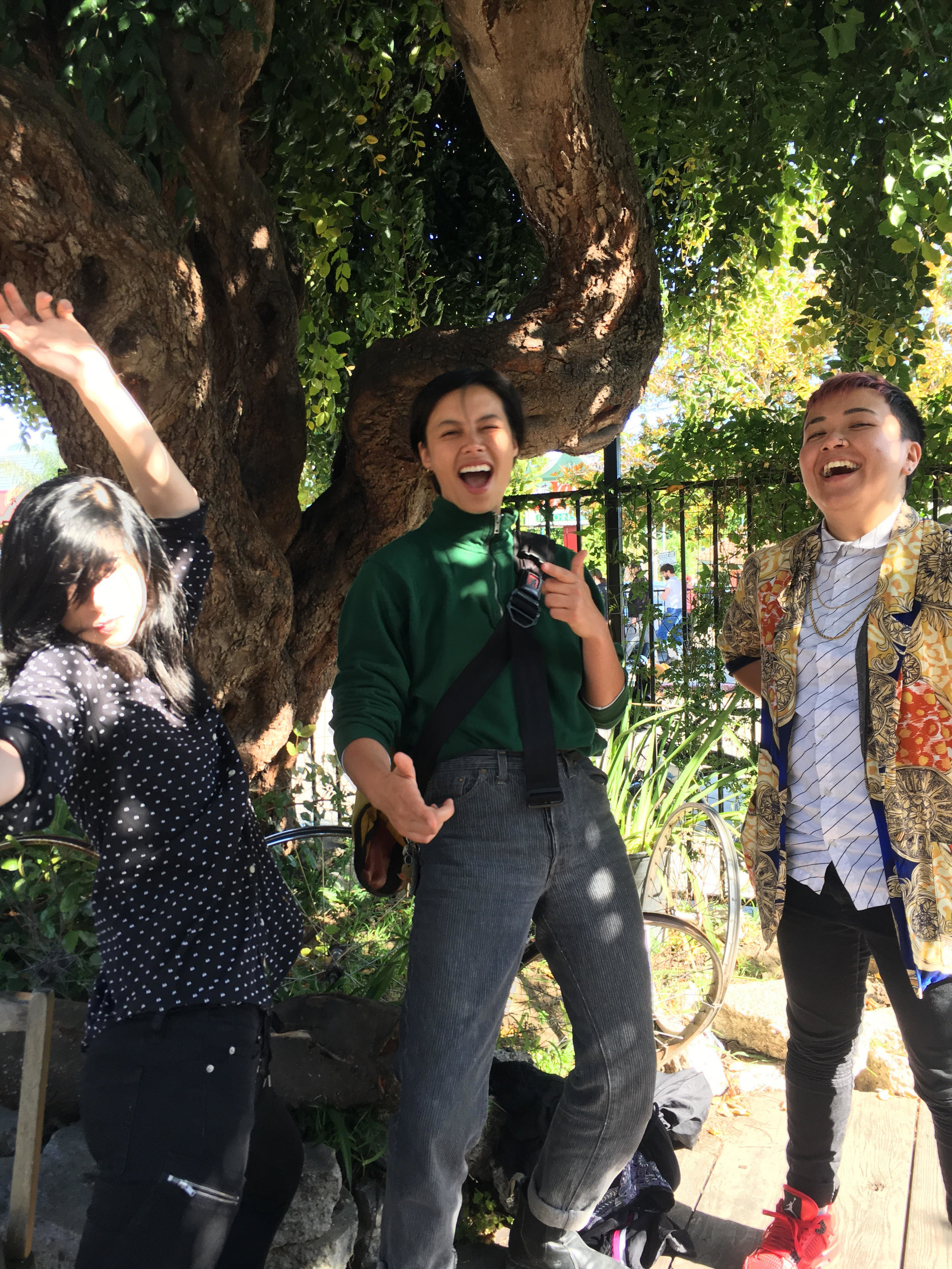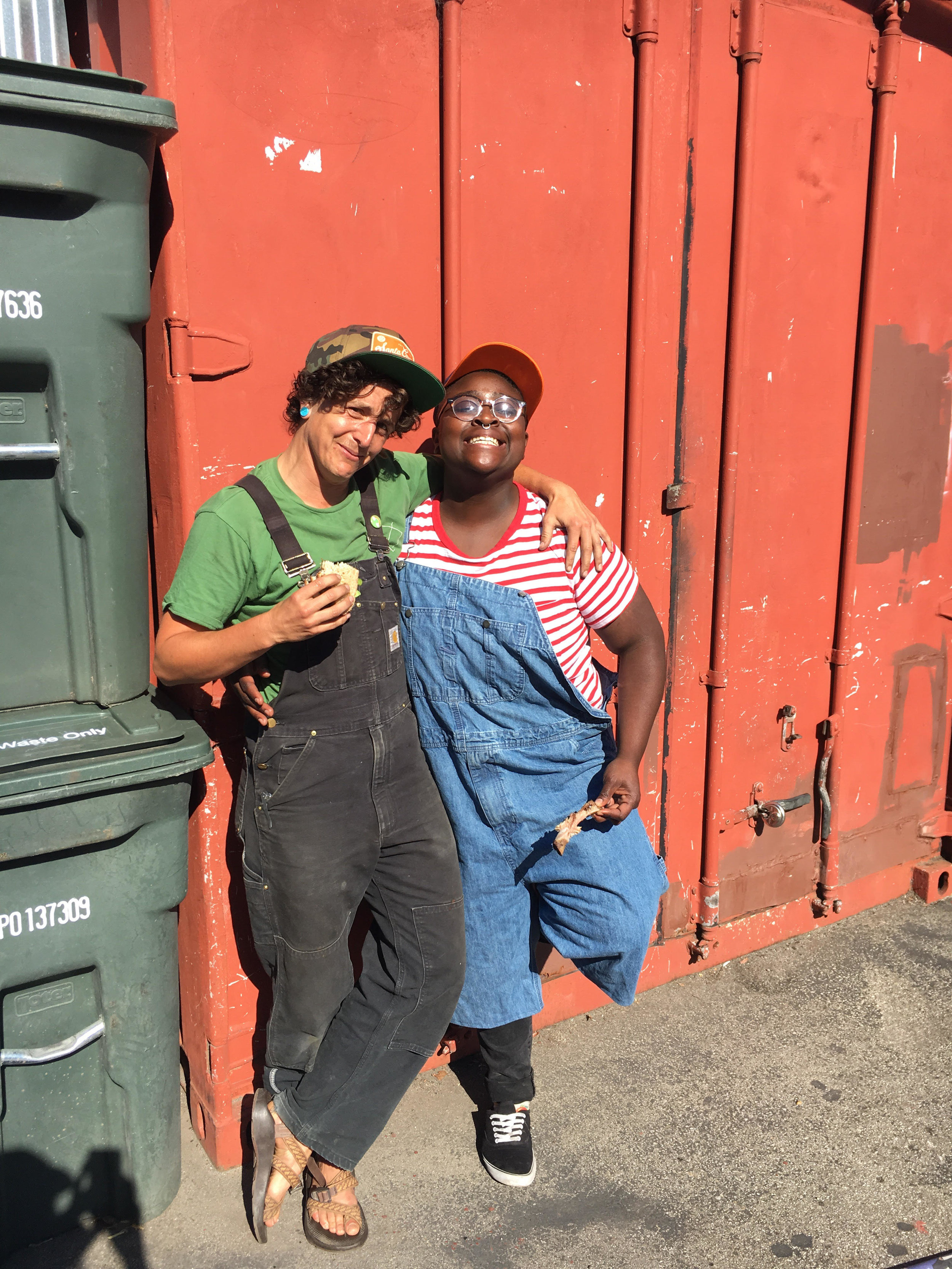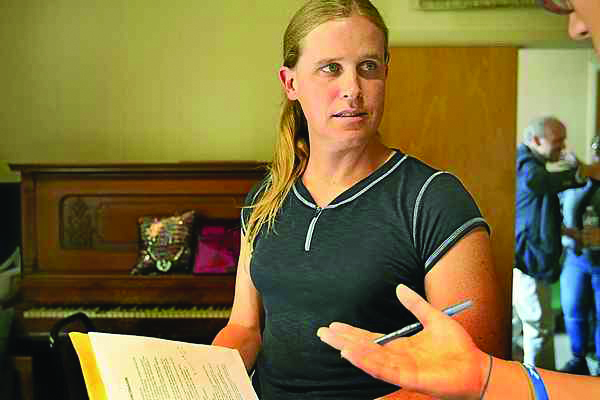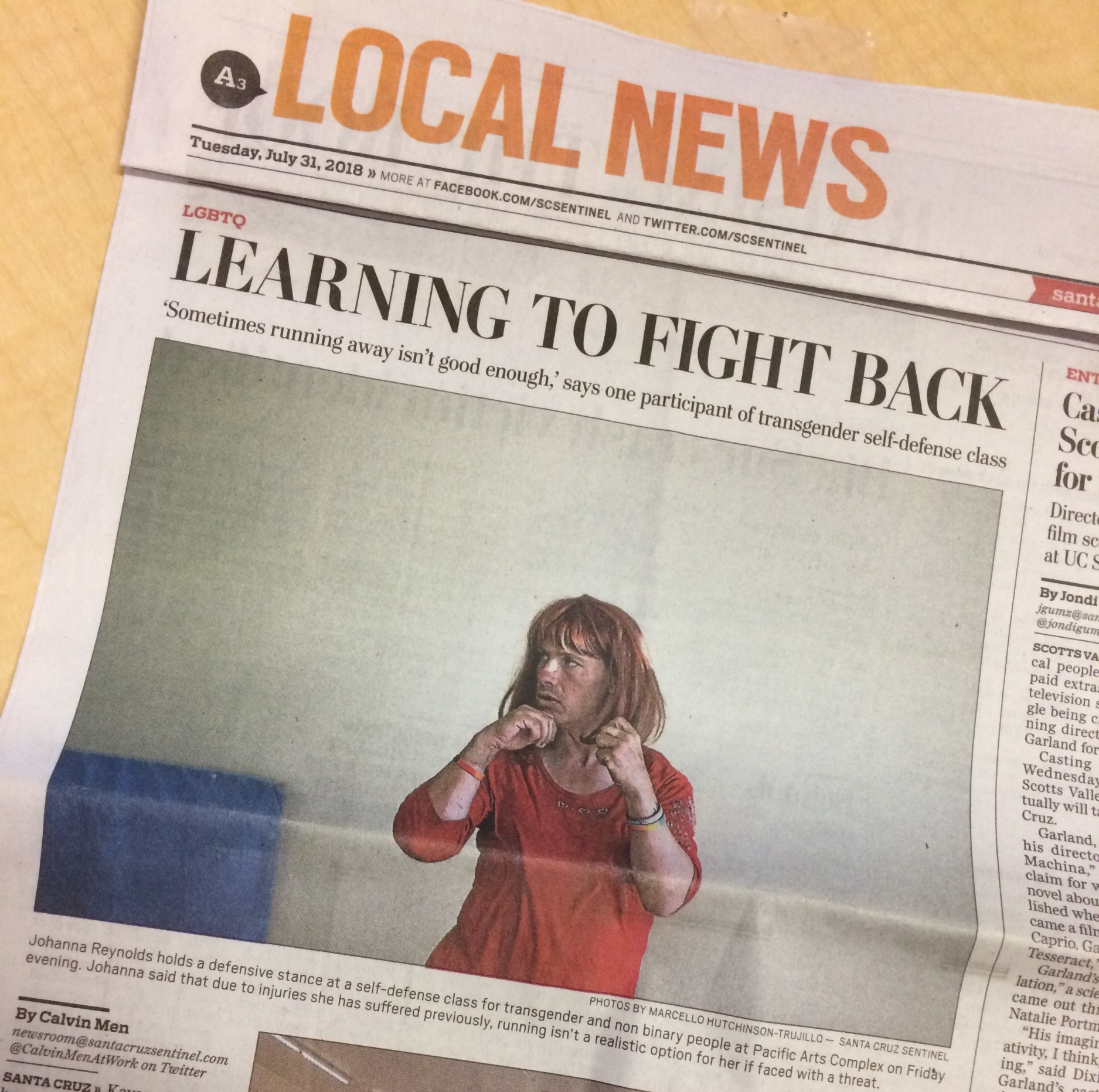By Fatemi Walker from the Santa Cruz Sentinel
Posted on October 26, 2018
The Volunteer Center of Santa Cruz County’s annual Be the Difference Awards, handed out Oct. 24, recognized 50 people and groups who “transform Santa Cruz County through volunteerism.” The 12-member committee for the Diversity Center of Santa Cruz’s 60Plus Senior Program received one of only six special awards given to “the top nominees” among these 50.
The volunteer group of seniors that comprise this 60Plus Senior Program committee are (in alphabetical order) Bev Bishop-York, David Crain, Tom Ellison, Joe Eugene, Anne Forsberg, LarryFriedman, FrancisGarcia, Colleen O’Connell Northcutt, Bob Pittman, Steve Trujillo, Doug Urbanus, and Marc Zammit. “Collectively, these individuals have given over 5,000 hours in volunteerism over the past 15years,”saidStevenMatzie,60Plus Senior Program Coordinator for The Diversity Center. “Most LGBTQ+ older adults have experienced a lifetime of discrimination, marginalization and oppression. And as they age, they face increased isolation,”said Matzie.“To cut through this isolation, the committee helps guide the Diversity Center’s 60Plus Senior Program and activities such as luncheons and social activities.” For example, on the luncheon days, eachmemberisassignedatask—
From helping set up the event to acting as a ‘buddy’ for new guests. “They lovingly create a welcoming and safe environment for everyone
in attendance. They also provide support to our men’s and women’s social events, which adds another level of connection to our community’s LGBTQ+ seniors.” Upcoming events include a November 10 Thanksgiving lunch (12:30-3:30 p.m.), and holiday parties for men (Dec. 15) and women (Dec. 16), each one from 2:30-4:30 p.m
David Crain and Bob Pitman, who are married, have been committee members since they moved to Santa Cruz from Washington in 2015. “Last year, we got up at 3 a.m. to cook a 23-pound turkey for the annual 60Plus holiday party and luncheon,” saidCrain (age 73) and Pitman (age 71). “We did a rosemary herbal mix in olive oil and rubbed it over the entire turkey under its skin.”They also provide rides to 60Plus members who need transportation to events.
Committee members also support the entire Seniors Program, and the 60Plus Program Coordinator, by “giving input and insight, and helping to address and meet the needs of our often marginalized and invisible LGBTQ+ seniors,” said Matzie. Crain and Pitman are active with this aspect. “We both have worked in public service and volunteerism throughout our lives,” the couple shared. “Bob served in the Peace Corps in West Africa and worked with Agency For International Development in Haiti. David worked in International Affairs think tanks
in New York City and Washington, D.C., and was an Executive for Grant Funding at The New York State Council for the Arts in NYC and The United Way in San Francisco.” Once they met and became a couple, they were “...a team of like-minded people who are advocates for human rights and making a difference in the welfare of our community. Now, as seniors, we are honored to be helping to sculpt the future of the Diversity Center’s 60Plus Program.”
The committee works “…tirelessly to provide day-to-day operational support, including folding, stuffing and mailing invitations to over 300 LGBTQ+ seniors every other month,” said Matzie. “The conversations during the folding are fascinating and inspirational.Theseseniorsledour movement for LGBTQ+ rights, equality andfreedom.”CrainandPitmanare happy to be a part of these gatherings, citing them as a chance to “....have a drop-in social time with friends while discussing new ideas for ‘curb appeal’ for the 60Plusers who may not yet be aware of all the various events available to them.”
The 60Plus program, which was created 15 years ago, is the oldest of all the Diversity Center’s programs. Matzie has been connected to it for four years. He started by volunteering, and then was an intern for the program while pursuing his Bachelor’s in Social Work from Humboldt State University’s Distributed Learning Program—which he received in 2017 at the age of 53. He focused his work on the LGBTQ+ senior population. “I completed my capstone project by researching social isolation among this population and included a study of our Santa Cruz County LGBTQ+ seniors.”
Matzie became Program Coordinator a little over a year ago. In this role, he coordinates five bi- monthly “all senior” luncheons and provides oversight to the six senior women’s and six senior men’s socials on alternating months (which include the aforementioned holiday parties). He also coordinates and implements a six-week health promotion curriculum called W.I.S.E. (Wellness Initiative for Senior Education). “We truly enjoyed the W.I.S.E. program, where we met even more new friends while learning how to better care for ourselves as aging people and remain active and social,” said Crain and Pitman.
Matzie’s role includes a multitude of tasks such as social media, responding to information requests, and coordinating database maintenance and donor acknowledgments. “Furthermore, I engage in advocacy by speaking to mainstream social service agencies about the unique needs and challenges of our LGBTQ+ seniors, and speaking at City Council meetings and other community events.”
He finds his work very rewarding. “I definitely get back, more than I think I give! I am honored to have the opportunity to be a part of the lives of LGBTQ+ elders who were on the forefront of the modern LGBTQ+ civil rights movement. Many of them were coming of age before the Stonewall riots in 1969, during a time when it was illegal to be LGBTQ+. They could be fired for simply being perceived as LGBTQ+, or they could be institutionalized. Homosexuality wasn’t even fully removed as a mental health disorder from the DSM (Diagnostic and Statistical Manual of Mental Disorders) until 1987! So what I get to experience and witness, is a community of historically marginalized, oppressed, and discriminated folks, who continue to demonstrate great resilience and compassion, and the joy they feel when connecting to their peers at a 60Plus Senior Program event. They give back to our community in ways they may never fully realize. They give me courage when I don’t feel courageous. They give me love and support at exactly the right time. Finally, they empower me and give me the energy I need to continue the work that is needed to make sure that all LGBTQ+ seniors are seen, heard, and know that they matter!”
Committee member Anne Forsberg is thrilled to be a 60Plus volunteer. “60Plus has been a very important part of my life for the past seven years. I have found a real community and a voice for our generation.”
Alina, a 76-year-old program participant, isn’t a committee member, but she is a grateful volunteer. “Alina is always ready to help with setup and table decorating on the day of our luncheons,” said Matzie. “I sent a picture of the committee to her (and all of our members). She replied, ‘I was looking at the photos in the last email you sent and realized that if I hadn’t begun volunteering at the 60Plus luncheons, most of those people I still would not know. So as always, I get back way more than I give when I volunteer.’ I think this is a perfect example of how the 60Plus Senior Program benefits Alina and all our participants. It’s about creating community and lasting friendships that help make their lives richer!”
Crain and Pitman have boundless praise for the program, including its “... extraordinary outreach efforts to bring older LGBTQ+ people together socially, thus counteracting the isolation that is so prevalent throughout most of the U.S. as our ‘frontrunner’ LGBTQ+ community ages.”They especially appreciate the Santa Cruz residents who are involved. “What’s really telling about the community here is the caring, the easy friendships and unwavering support when help is needed.”
When talking to some of the committee members, Matzie said, they didn’t realize what a huge impact they have on ensuring the needs of Santa Cruz County LGBTQ+ seniors are visible and acknowledged. “When the program started, the founders had the foresight to realize that our LGBTQ+ community is aging and put into place a foundation of support for those 60Plusers yet to come. Without this committed group of seniors, and those who have served before them, and all our members, this program would certainly not be growing and thriving as it is today.”
Matzie believes that the committee members’ volunteerism adds to the richly diverse communities and overall health of Santa Cruz County. “When ALL of Santa Cruz County’s elders, especially the most marginalized, are seen as vital members of our community, we demonstrate to others that our seniors’ voices matter and they add great value to the programs we operate,” said Matzie. “The 60Plus Senior Program Committee is the bedrock for our program, which enables it to remain on solid ground and continue to grow. They do
not volunteer for recognition, but rather to ensure that ALL of our Santa Cruz County LGBTQ+ seniors are acknowledged, connected, and supported.”
• For more information on theDiversity Center’s 60Plus Senior Program (1117 Soquel Ave., Santa Cruz), visit diversitycenter.org/senior
• Want to donate to or sponsorthe Diversity Center’s 60Plus Senior Program? Visit the following web address and indicate the donation be designated to the 60Plus Senior Program: diversitycenter.org/donate/
• Interested in volunteering?
Visit the volunteer web page at diversitycenter.org/volunteer- opportunities/. The form has a place to indicate a specific program you’re interested in, i.e. 60Plus Senior Program
• For questions on eitheropportunity, contact Steven Matzie directly at 831-425-5422 ext. 108 or 60plus@diversitycenter.org
























